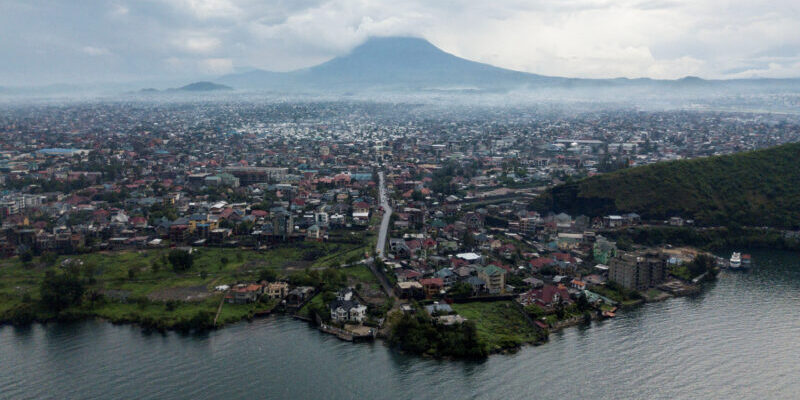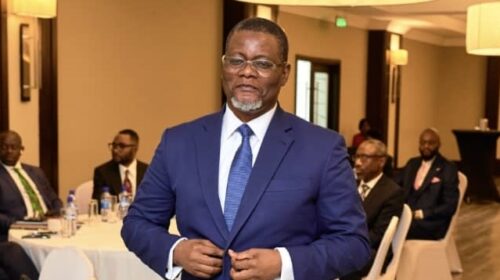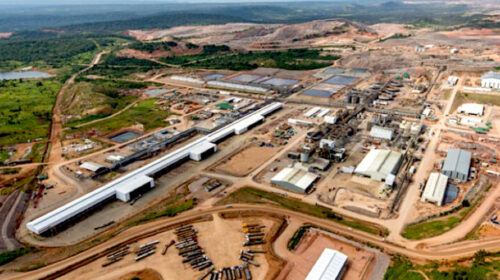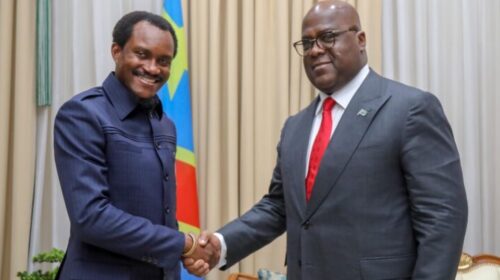An investigation by Reuters and the TBIJ points to irregularities in the tender process for gas blocks in the DRC
The Reuters news agency and The Bureau of Investigative Journalism (TBIJ) published an investigation on Thursday last week about the award of a gas block to the Canadian start-up Alfajiri Energy Corporation even though it does not meet the prerequisites of the law.
President Félix Tshisekedi, who is seeking re-election in December, has promised to rid the DRC of its reputation for opacity and for the first time, the ministry of hydrocarbons has organized a call for tenders for dozens of oil and gas blocks, some in environmentally sensitive areas. The process is formally carried out in accordance with the requirements of the 2015 law and a 2016 decree aimed at promoting transparency in the oil and gas sector.
Reuters and TBIJ had access to the documents of the ad hoc commission set up by Minister Didier Budimbu to evaluate the offers. Canadian company Alfajiri Energy Corporation was allowed to participate in the tender, although the pre-selection report dated October 2022 indicated that the company had not met the minimum financial requirements under Congolese law.
The absence of three years of financial statements
The call for expressions of interest launched by the Ministry of Hydrocarbons for the project sets out a clear stipulation: only companies with three years of financial history will be considered eligible, a requirement which mirrors a clause in the new oil and gas regulations of the Congo. Concretely, articles 66 and 67 of the 2016 decree regulating the sector specify that offers will be rejected if they do not meet certain conditions, in particular “the presentation of balance sheets and statements for the last three financial years”.
Joseph Nzau was a lawyer at the ministry when the regulations governing the sector were drafted. He told Reuters the financial history requirement was created after several companies with previous oil and gas contracts found themselves without the means to execute projects.
“The rule is clear. A company applying for preselection must provide proof of its accounts and balance sheets for the last three years,” he said. He declined to comment on the skills of the company in question.
In his response to Reuters and TBIJ, Minister Budimbu denied that Alfajiri’s absence of three years of financial statements should have disqualified her during the pre-selection phase, saying it amounted to a misinterpretation of the law. He also said that Alfajiri had scored high enough to pass the pre-selection stage. This company was the lowest rated of the four that submitted an application with a score of 78/100. The other three presented their accounts and balance sheets for the last three years.
In a written response on October 23, Alfajiri founder and chief executive Christian Hamuli called the process “rigorous, transparent and credible.”
South Kivu-born Christian Hamuli registered Alfajiri Energy Corporation on January 10, 2022, three weeks after the auction plans were initially announced, using his Calgary home address, according to Canada’s corporate registry . Hamuli did not directly respond to questions about the absence of required financial statements in Alfajiri’s candidacy. Alfajiri has “highly qualified and experienced professionals, with integrity, capable of developing the project in a secure manner,” he said.
An altered technical report
Despite his lack of financial history, Alfajiri moved forward in the process and his bid for the Lwandjofu block was evaluated alongside those of the American Winds Exploration and Production and the Congolese-Lebanese company Ray Group. Reuters and TBIJ claim that a technical report evaluating the bids, dated December 8, 2022, was altered in favor of Alfajiri.
In a first version, Alfajiri’s bid received the lowest score among the three bidders – a total of 30.7 points out of 100 possible – on a scale assessing the extent to which the bids met financial and technical criteria, including the proposed partnership conditions with Congo, the work plan and the qualifications of key personnel.
According to the document, Alfajiri failed to demonstrate that it employed qualified personnel, did not submit a feasibility study or timetable for the project and “failed to take into account public safety issues “. Winds had the highest score among the three bidders, with 53.8 points.
But then an edited version of the report put Alfajiri in first place. The second version of the report – also dated December 8 and seen by Reuters – took Alfajiri’s score to 55.75, putting him ahead of Winds.
In his response, Minister Budimbu told Reuters and TBIJ that the only version of the final report that mattered, and that he received, was the one in which Alfajiri received the highest rating.
Although Alfajiri gave a higher score, the final report added a number of concerns to the previous version, including comments that Alfajiri had proposed insufficient funding for bonuses and other state benefits and projects social services for the population.
Several sources told Reuters and the TBIJ that Minister Budimbu intervened to favor this company at several stages of the process, which the latter denied.
Civil society concerned about lack of transparency
“We are concerned about the way the process is going. There is significant communication from the Ministry of Hydrocarbons around the call for tenders, but there is no transparency on how the companies are chosen. We must stop selecting companies that do not have the skills,” Jimmy Munguriek, one of the spokespersons for the “Congo is not for sale” platform, explained to Actualité.cd.
Lake Kivu is one of three lakes in Africa that scientists say are at risk of a limnic eruption. Extracting methane from Lake Kivu could provide electricity to some of the 80% of Congolese who do not have access to electricity, and potentially reduce lake-related risks, the Congolese government and experts say. But some scientists, including Italian volcanologist Dario Tedesco, told Reuters that failure to properly reinject water and its byproducts could increase the risk of eruptions of carbon dioxide and toxic hydrogen sulfide. , pollute the lake and alter its delicate chemical and physical balance.
To read on the TBIJ website:
Backroom deals, mystery companies and a ‘killer lake’: inside DRC’s gas and oil auction
Read the Reuters report:
Exclusive: Canadian winner of gas rights on Congo’s ‘killer’ Lake Kivu failed criteria
64 total views , 1 views today





